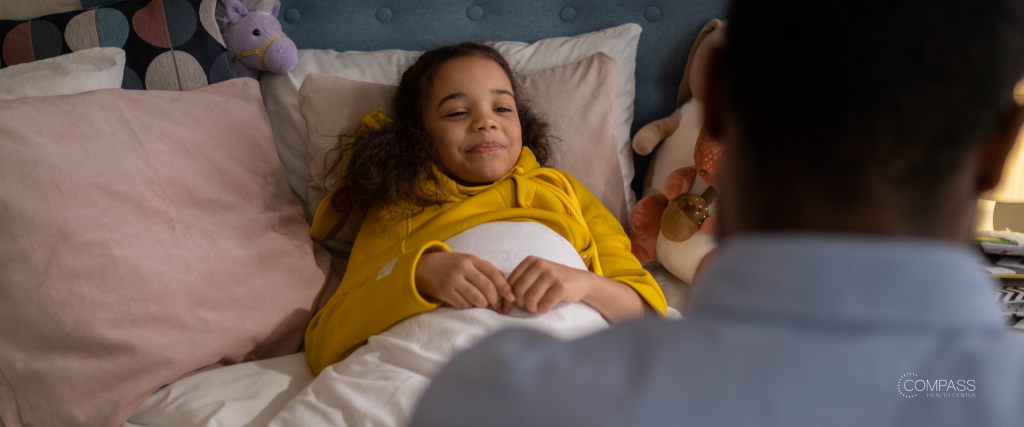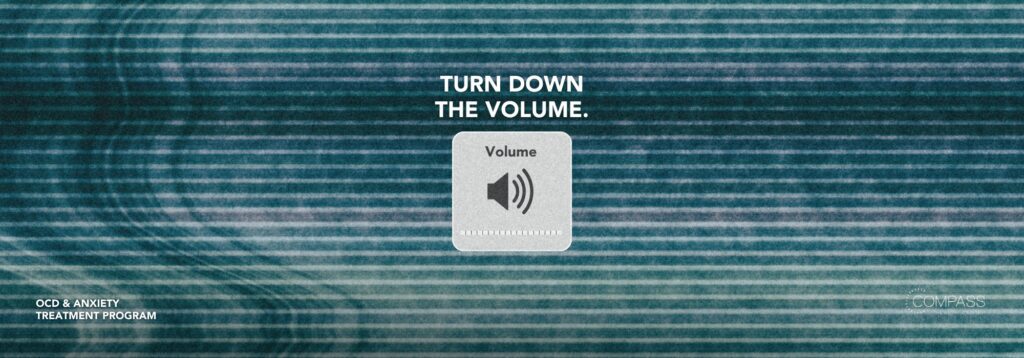
Recognizing, Treating, and Supporting Children with OCD
What is Obsessive Compulsive Disorder (OCD) in Children?
Obsessive Compulsive Disorder is one of the most common mental health conditions in children and adolescents, impacting an estimated 1 in 100 youth. However, despite its prevalence, OCD is a condition that is often misunderstood, misdiagnosed, and therefore undertreated. This may be due to the wide range of presentations for obsessions and compulsions, or the concern that children may mask or underreport symptoms due to fear, shame or guilt. With evidence-based treatment available, it is important to understand what OCD is, how to identify potential warning signs, and how to access support if your child is struggling. Navigating parenthood is challenging, and seeing your child struggle with any kind of mental health condition can add a multitude of stressors. Understanding how to best support your child if they are experiencing OCD is one of the most important steps on their road to recovery.
Symptoms of OCD in Children
Obsessive Compulsive Disorder is characterized by a cycle of unwanted, repetitive thoughts that are distressing to the person (obsessions), followed by a strong urge to engage in repetitive behaviors or mental acts, meant to decrease the anxiety brought on by the obsession (compulsions). While we all experience thoughts that we may find strange, or even disturbing from time to time, individuals without OCD may be able to move on from these quickly, without assigning them excessive importance or power. One way to conceptualize OCD for children is to explain that when someone has OCD, their brain sorter often gets flipped “off”. Obsessive thoughts get sorted into a “this must mean something” pile, and the person feels they need to do something to rid themselves of the thought in order to ensure their physical, or emotional safety. Others who do not experience OCD may have the same kinds of thoughts, however their brain sorter may work to accurately sort them into a “junk” or “unimportant” pile, requiring no further attention.
Myths About OCD in Children
OCD will look different for each individual, and due to the nuanced nature of symptoms, can often be overlooked or mistaken for something else, such as ADHD, generalized anxiety, or even written off as childhood quirks or superstitions. Early intervention for OCD can equip youth with the tools they need to challenge OCD throughout their life, as opposed to feeling trapped and limited by their condition. As a parent, recognizing the signs of OCD, enlisting support through evidence-based treatment approaches, and encouraging your child to challenge OCD at home are 3 of the most important ways you can help. Read below to find out more.Isn’t OCD just about handwashing? (H4)
No, OCD is not just about handwashing, or checking light switches, as it is often portrayed in the media. OCD can be a serious and impairing mental health condition that presents in a wide variety of ways, often having nothing to do with germs or checking behaviors, despite common misconceptions. While the OCD cycle of distressing obsessions, followed by urges to engage in compulsions is consistent, the content or focus of these can vary greatly. Some presentations of OCD include unwanted and distressing violent or sexual thoughts, a need for symmetry, evenness or order, excessive concerns re: contamination from germs, dirt, bodily waste, chemicals, and many more.
OCD is often considered the “doubting disorder” and is characterized by an intolerance for uncertainty in one or more specific areas, for example: “How can I be sure that I will not act on the scary, violent thought that just popped into my head?” Individuals with OCD often report that they find themselves questioning or doubting the things that are most important to them, increasing their feelings of distress and despair.
Some signs your child may be struggling with OCD symptoms include, but are not limited to:
- Increased feelings of anxiety, which may look like difficulty with sleep, crying spells, or expressing increased worry and fear
- Increase in repetitive behaviors: repeating words or phrases multiple times, redoing things or retracing steps, excessive personal hygiene or cleaning behaviors, asking for reassurance from family members.
- Increased avoidance of specific situations that may contain OCD triggers (school, driving, certain public places).

Evidence-Based Treatments for OCD in Children
What treatment is available for OCD?
The first line of treatment for individuals of any age with Obsessive Compulsive Disorder is a type of Cognitive Behavioral Therapy called Exposure Response Prevention, and/or psychiatric medications called Serotonin Reuptake Inhibitors or SRIs.
Exposure Response Prevention is a therapy that multiple mental health professionals can provide, including social workers, counselors, and psychologists at varying levels of intensity, ranging from outpatient therapy to Intensive Outpatient or Partial Hospitalization Programs that include 3-6 hours of treatment 5 days a week. Exposure Response Prevention focuses on helping clients to identify and gradually face their OCD triggers head on, without engaging in their usual compulsions or safety behaviors. This allows for the reduction of anxiety over time, as well as new learning about safety, and the individuals ability to manage their own feelings of anxiety. Exposure Response Prevention focuses on teaching clients an “approach vs. avoid” mindset, that they can take into their everyday life to challenge OCD and anxiety symptoms in the future. Many individuals find that the combination of ERP and medication management with a prescriber is successful in managing their OCD symptoms and greatly improving their functioning and quality of life.
Practical Ways to Support Your Child with OCD
How can I support my child with OCD at home?
OCD for children and adolescents often feeds off of accommodations that well-meaning loved ones do in order to keep the child’s distress down. For example, a typical childhood fear, even for kids without OCD, may be related to someone or something being in their bedroom at night. Parents may participate in bedtime routines with their younger child such as giving reassurances or checking closets in order to soothe a child’s fear of someone being in their room.
While many children grow out of this, someone with OCD may experience this as an obsessional fear even into adolescence, with increasing nighttime rituals that feel necessary to perform, and require extensive parent involvement. While these may feel necessary to help your child, these kinds of accommodations reinforce the false belief that the child is only safe from their obsessional fear because of the rituals parents are participating in. With the support of mental health professionals, together with their child, parents can begin to identify the ways that they can decrease these accommodations that perpetuate OCD, while maintaining a supportive and loving position as their child begins to face their triggers head on.
Steps to Take When You Suspect Your Child Has OCD
I recognize that my child is struggling with OCD symptoms. What can I do?
The International OCD Foundation has a provider directory to search therapists, psychiatrists, and other mental health providers in your area who specialize in treating OCD. You can also find helpful information on iocdf.org to educate yourself further about what OCD is, what treatment looks like, and how to support your child. If you think your child need more support for OCD then outpatient therapy, do not hesitate to contact Compass Health Center at 877-552-6672 to schedule an intake to determine If one of our Partial Hospitalization or Intensive Outpatient programs may be right for your child. Compass prides itself on providing compassionate, individualized, and evidence-based treatment for obsessive compulsive disorder and all anxiety disorders for children, adolescents and adults.

Building a Support System for Your Child and Family
We know that loving a child with OCD can be anxiety-provoking for the caretakers involved. We are here to help you navigate this journey, and provide the support needed for your child to live a healthy and fulfilling life, free from the limitations OCD can seemingly put in place. We want to thank you for taking the time to read this information and encourage you to reach out with any questions about how Compass can support you and your family.


